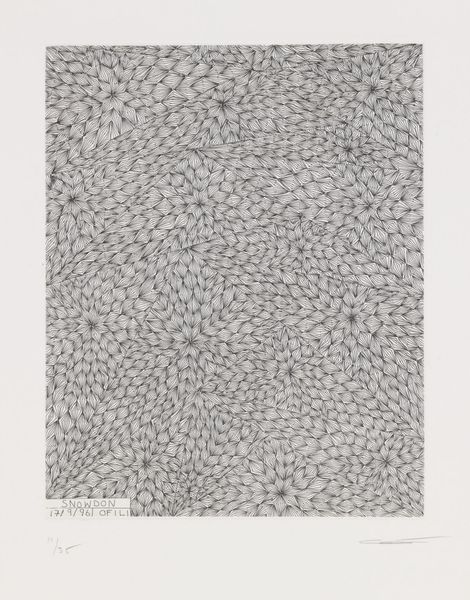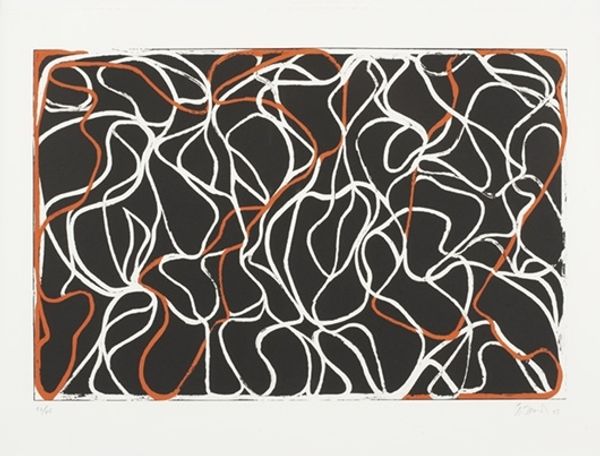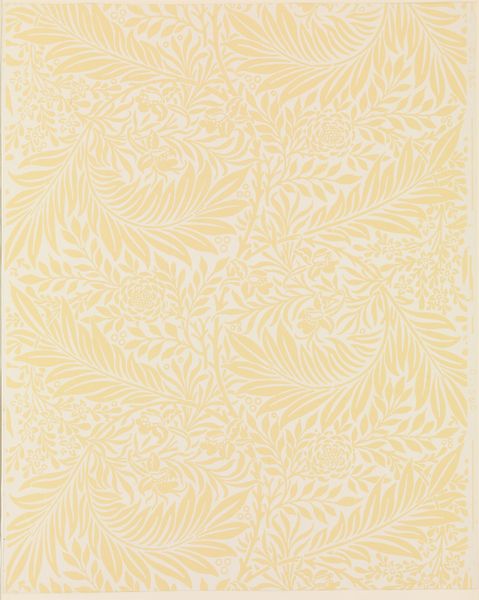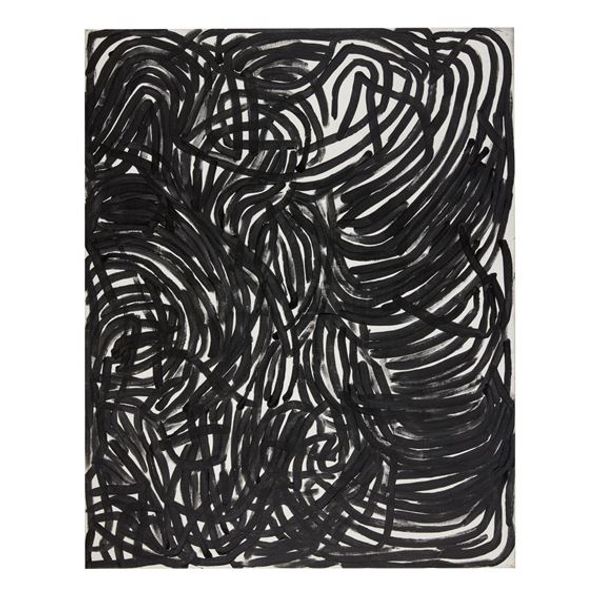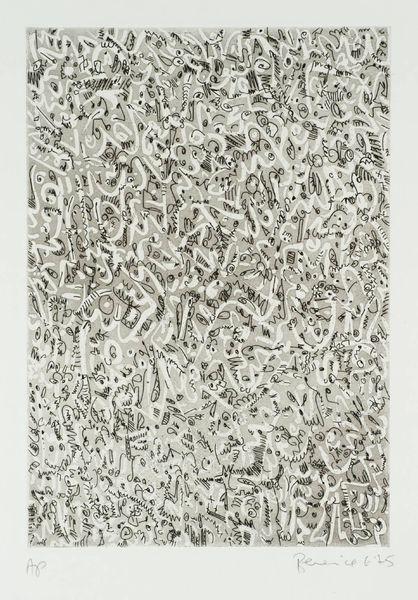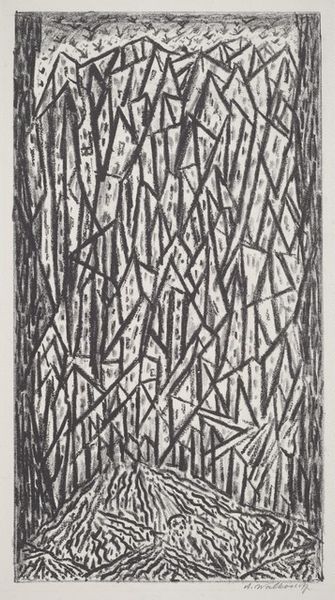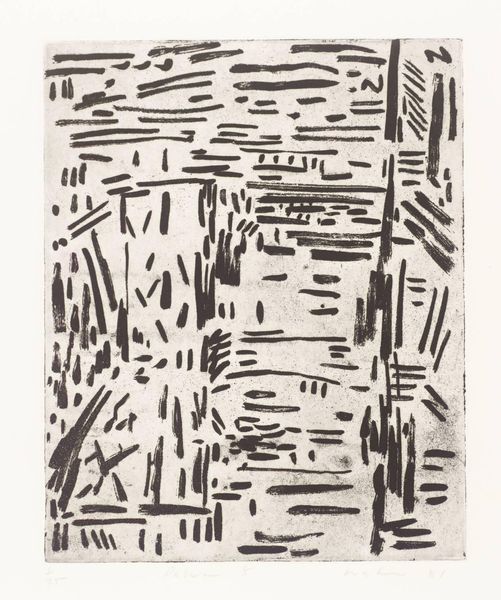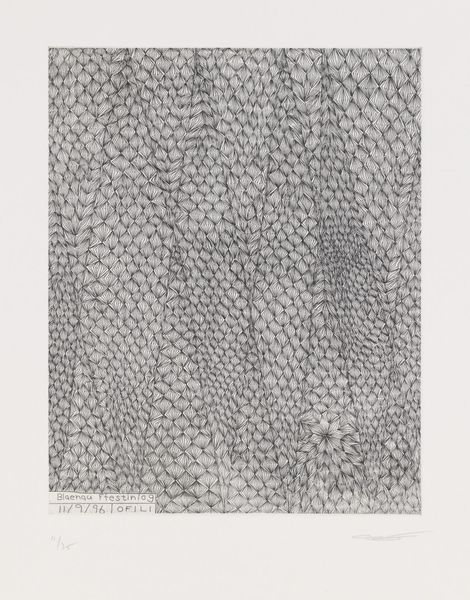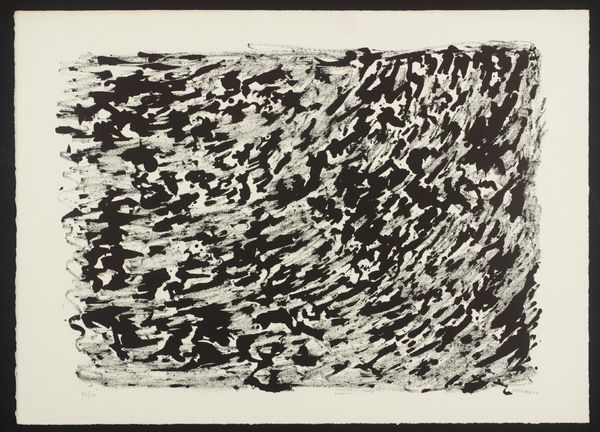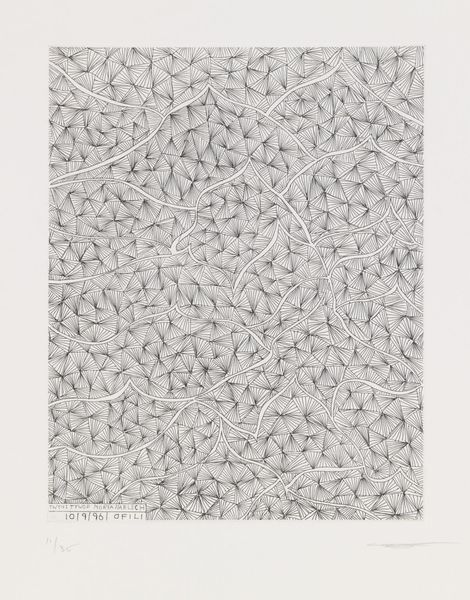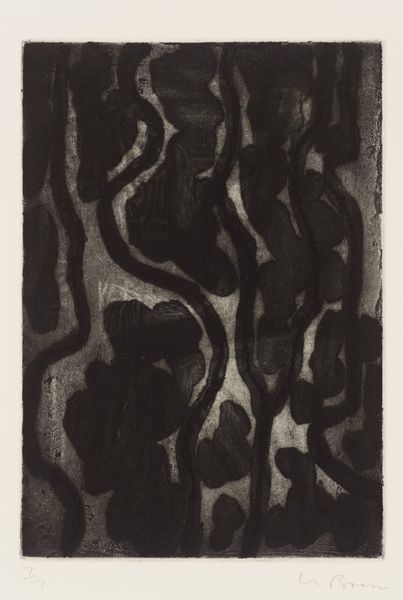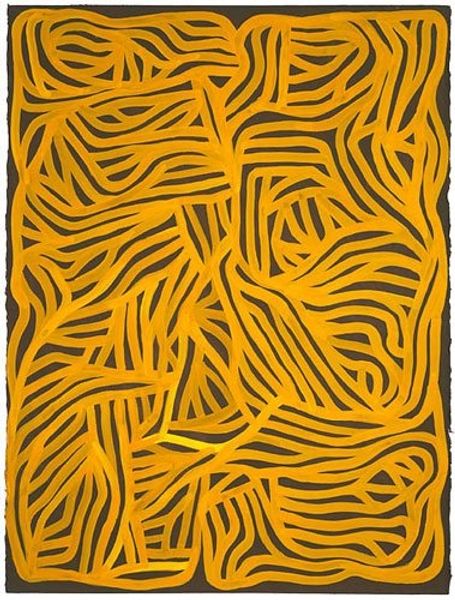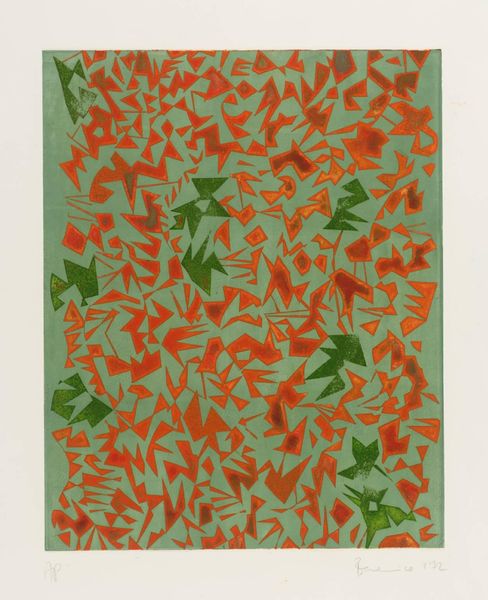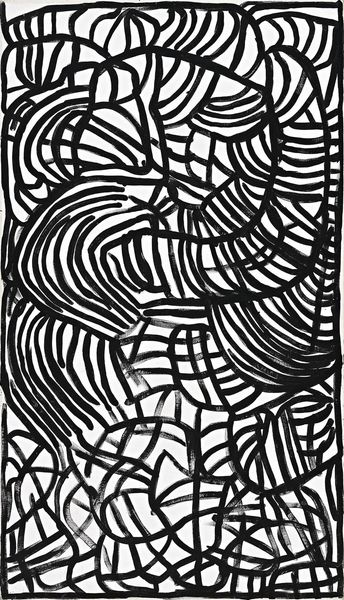
#
organic
# print
#
geometric
#
abstraction
#
line
Dimensions: overall: 67 x 53.1 cm (26 3/8 x 20 7/8 in.)
Copyright: National Gallery of Art: CC0 1.0
Editor: This is Pavel Hayek's "Locust Tree Pods" from 1997. It appears to be a print, and it really fills the visual space. There is a lot of repetitive form. I'm wondering what strikes you about it? Curator: What's immediately interesting to me is the tension between representation and abstraction. We see the titular "locust tree pods," natural objects, depicted, but they’re organized in such a way that they lose their individuality, becoming almost a pattern, a constructed reality. How does the materiality of printmaking—the labor involved in creating multiples—influence our perception of something organic? Editor: That makes me think about mass production. Is Hayek making a comment on industrial processes being applied even to nature? Curator: Precisely! And consider the choice of printmaking. Why not painting? Printmaking, by its nature, is about reproduction, dissemination, almost industrial replication. Think about the socioeconomic implications here. We are far from ideas such as 'high art' where unique creative skill results in objects meant for the few, no? This is accessible. It's democratic. But what do you make of the black and white contrast itself? Editor: Well, that almost amplifies the mechanical feel...taking color, and hence variation, out of the equation. It strips it down to a very basic level. Almost the raw materials, ink and paper. Curator: Exactly! Stripping down to the bare essence. What this print really seems to reveal is the constructed nature of even what we perceive as natural or organic. It challenges us to question the means of production behind what we consume, whether it's art or the resources nature provides. Editor: So, it's not just about seeing the locust pods, but understanding the entire system that brings them, or representations of them, to us. That’s fascinating, I hadn’t thought about it that way. Curator: And, hopefully, that changes how we perceive prints and nature itself!
Comments
No comments
Be the first to comment and join the conversation on the ultimate creative platform.
